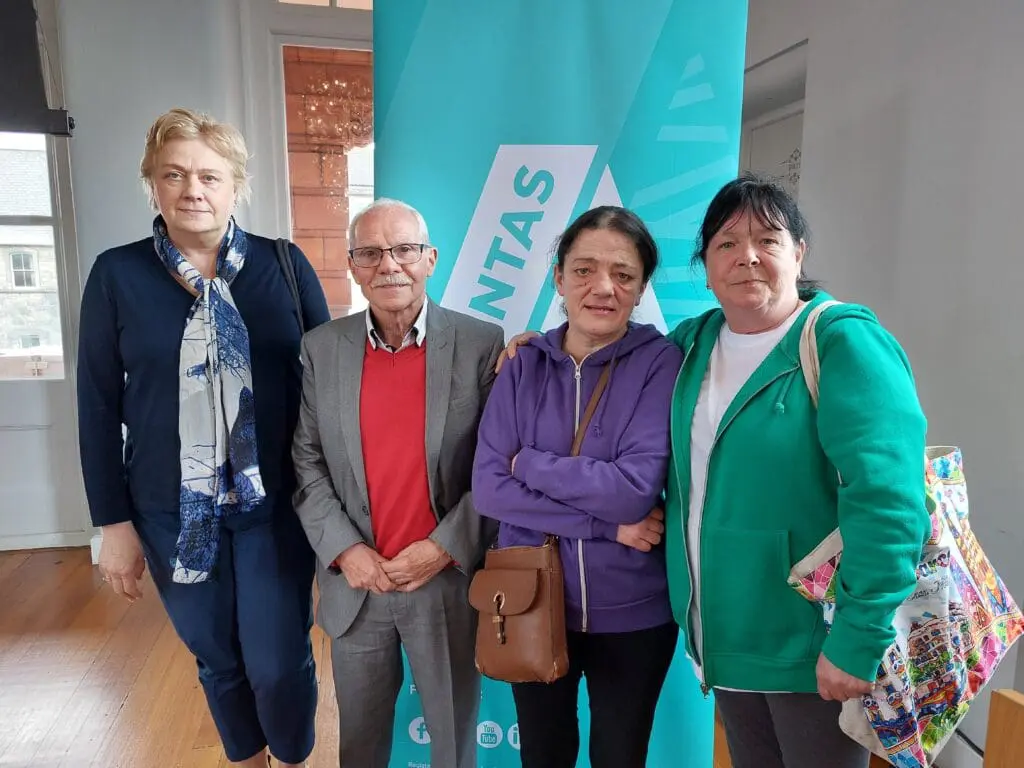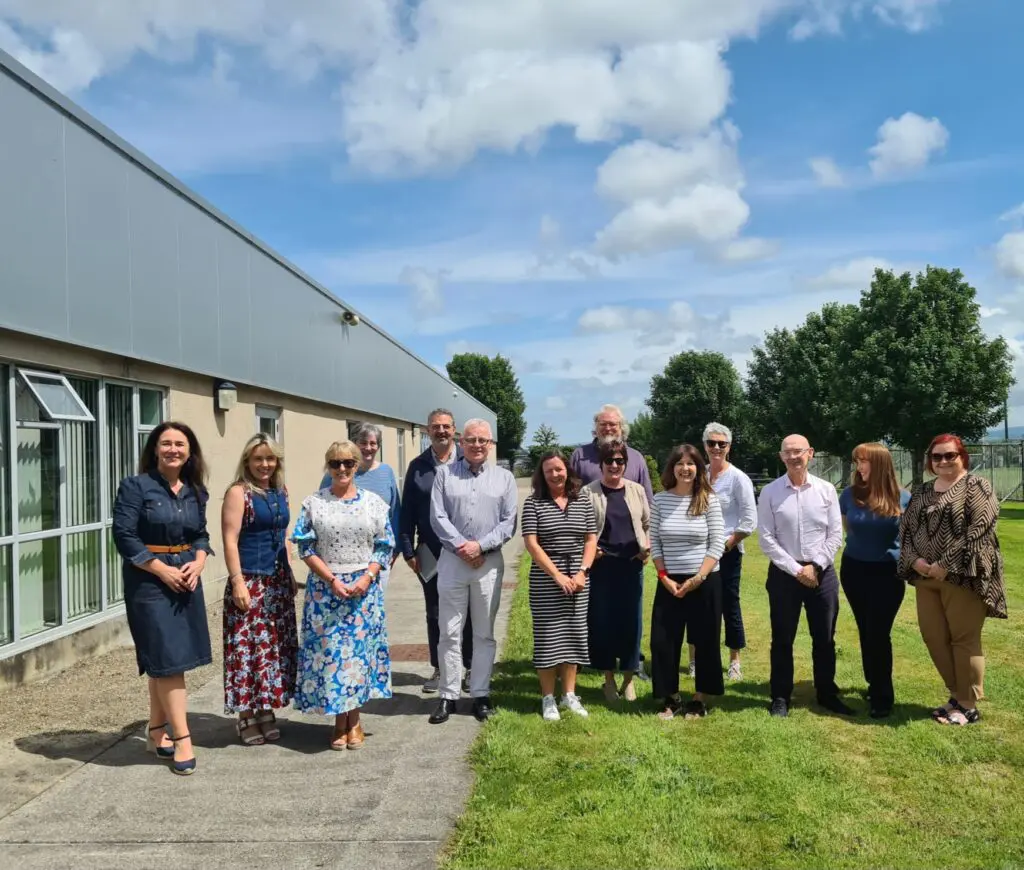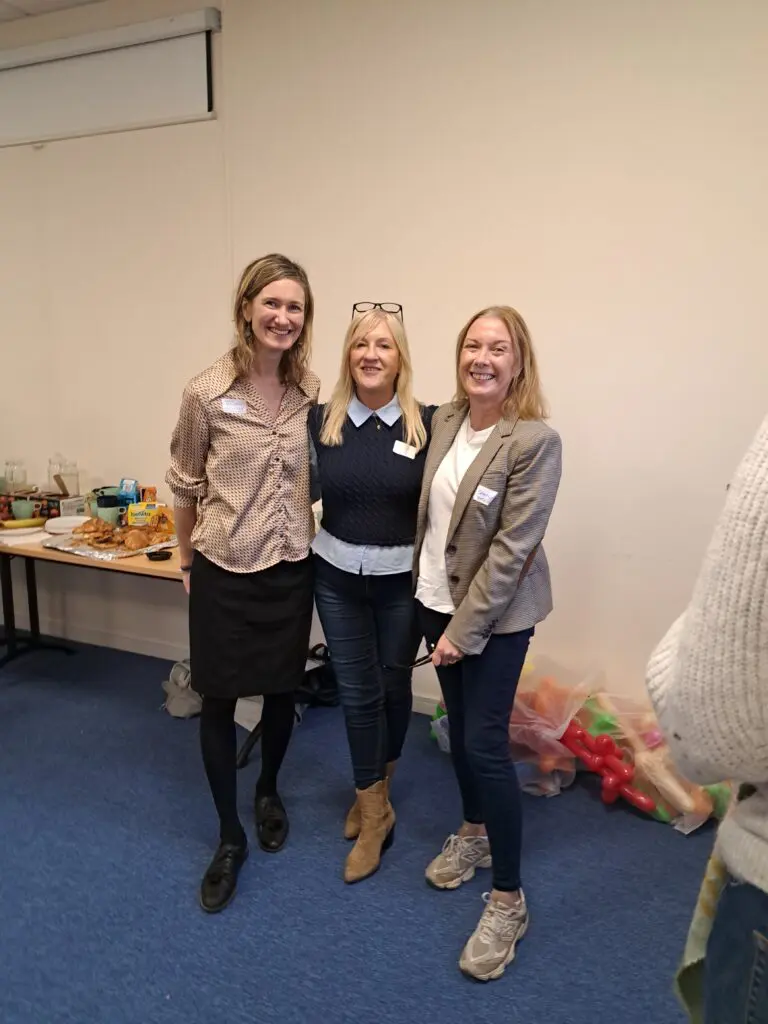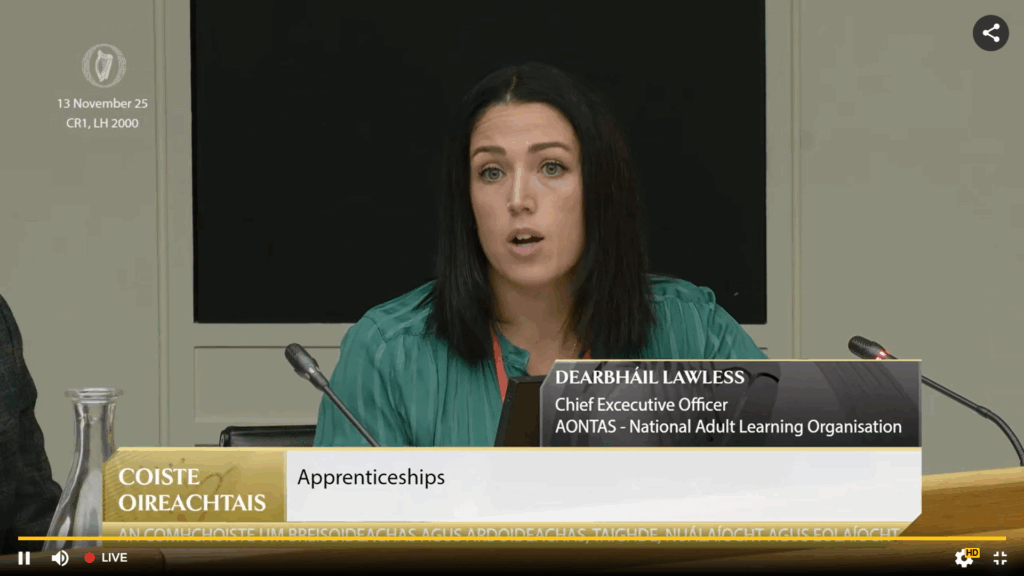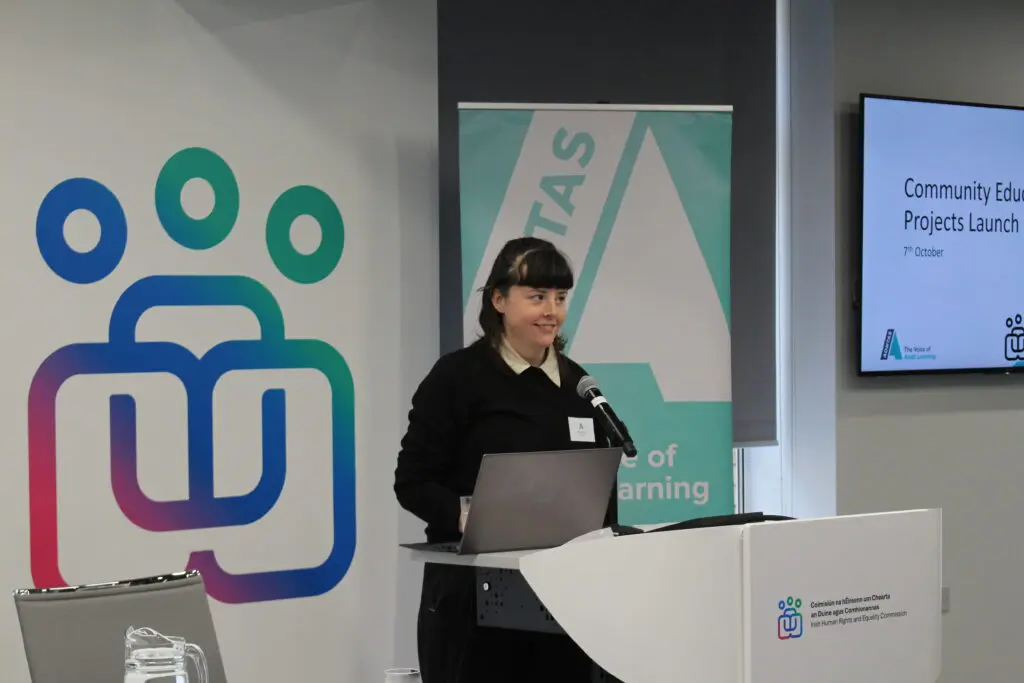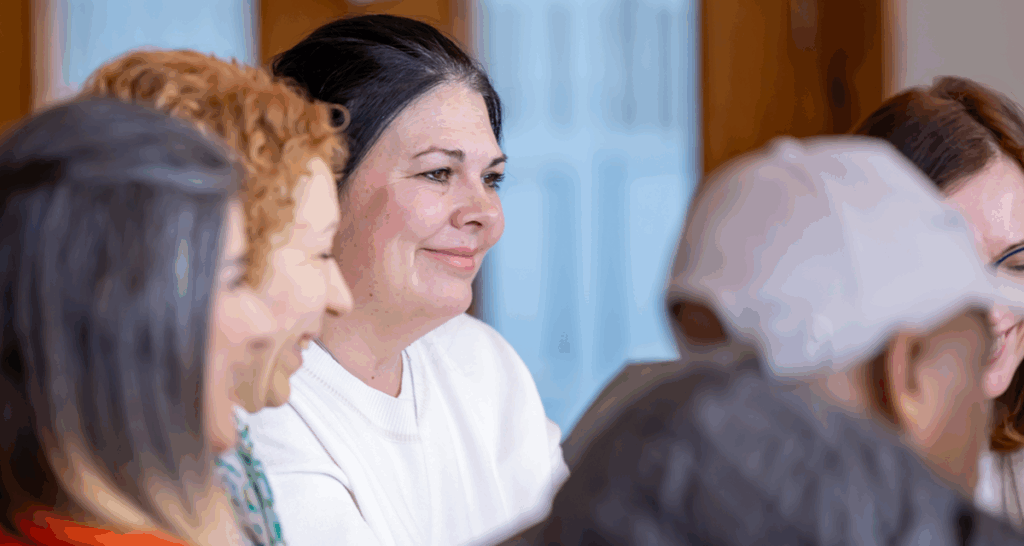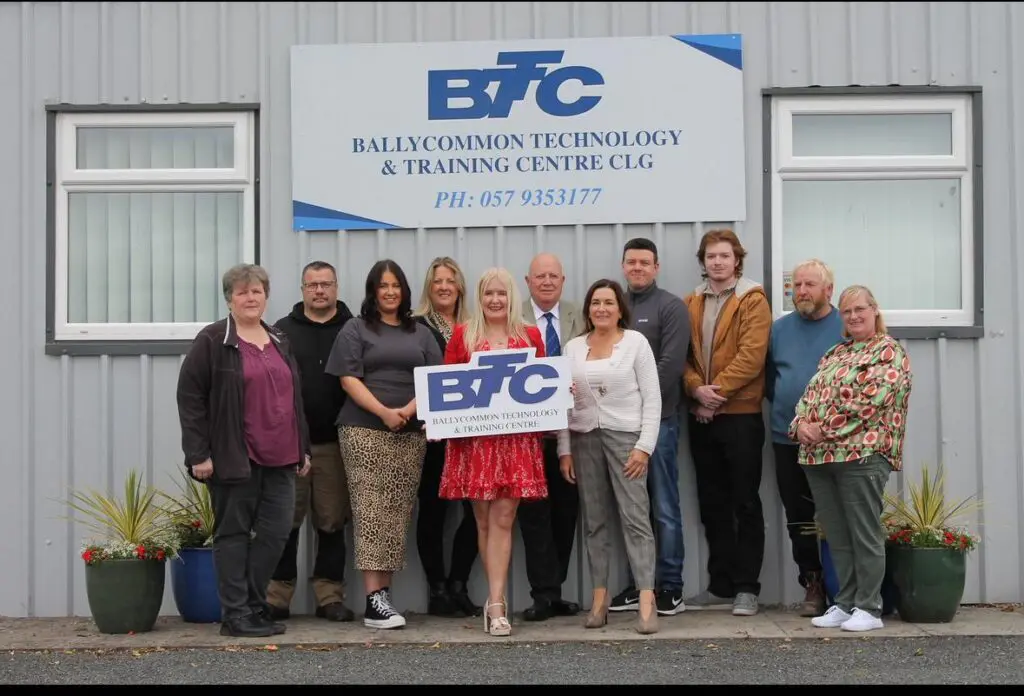TO SWITCH and Later Life Online
In May, we ran a half-day event called Later Life Online, with discussion and workshop on new findings in narrowing this digital divide. We heard from older – or “later life” – learners, who described their experiences of gaining more confidence and competence with technology and digital skills. Later Life Online included Adult Literacy for Life policy updates, digital teaching tools demonstrations, and roundtable discussions. It was the closing seminar, or “Multiplier Event”, for the Erasmus+ funded TO SWITCH project. We partnered with organisations from six other countries to develop guidelines and structures for trainers and coaches who work with later life learners. 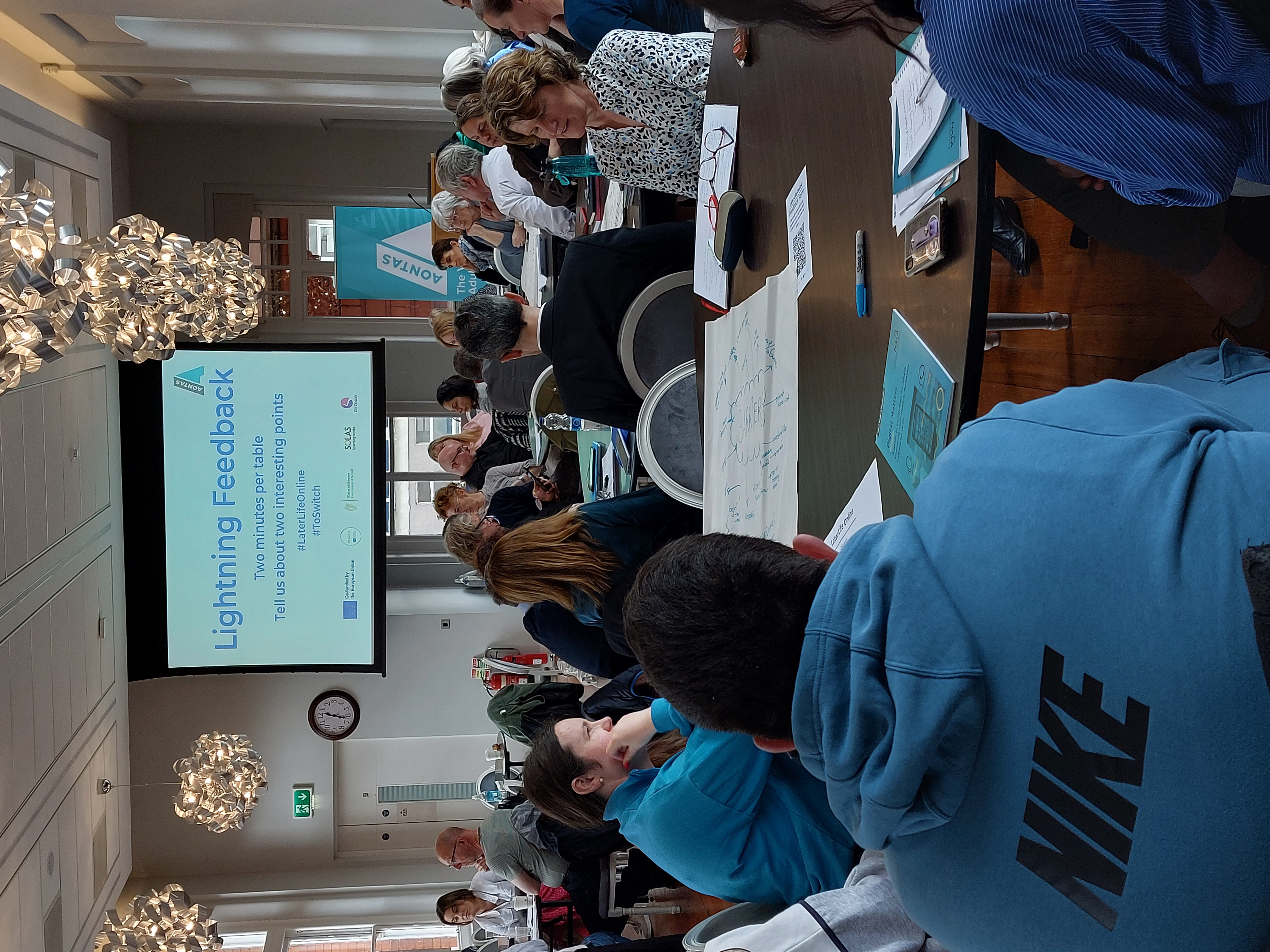
Adult Literacy for Life: A Broad Definition of Digital Literacy
The morning began with an Adult Literacy for Life (ALL) strategy update from Yvonne McKenna, who leads the ALL team at SOLAS. ALL is a national ten-year adult literacy, numeracy and digital literacy strategy with a single vision: “An Ireland where every adult has the necessary literacy, numeracy and digital literacy to fully engage in society and achieve their full potential.”
The strategy takes a broad definition of literacy, and uses an “Integrated Approach,” with many different organisations and Government departments working together towards the same goal. Yvonne spoke about the current challenges we face with digital literacy. The Digital Economy and Society Index (DESI) is a European measure of digital competences. According to DESI, when the ALL Strategy was first designed, 47% of adults in Ireland lacked basic digital skills. ALL aims to reduce this figure to 20% over the next ten years.
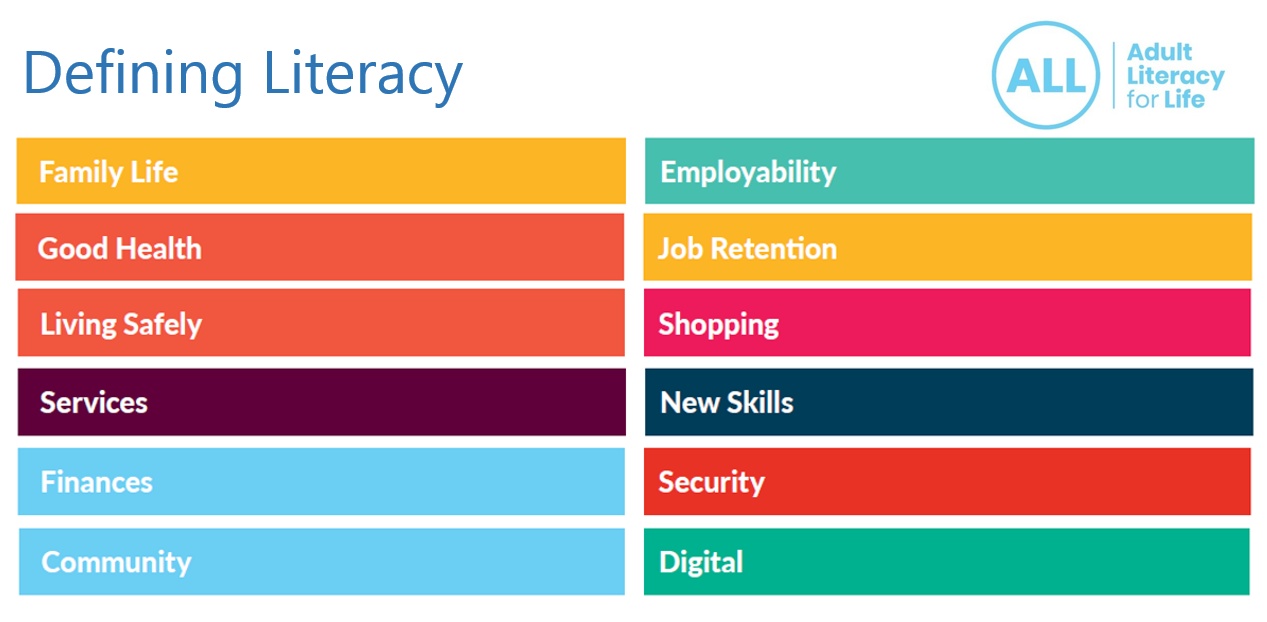
ALL’s broad definition of literacy
Building Confidence Online: Learners’ Experiences of the TO SWITCH Project
With Yvonne McKenna having framed Later Life Online within the national policy context in Ireland, Christina Lynskey, Mags Keena-Dillon, Martin Byrd and Lina Klenauskaite from Dublin Adult Learning Centre (DALC) discussed their experiences of taking part in the TO SWITCH project. The learners were all in Liz Stein’s class at DALC. Liz travelled with the AONTAS team to take part in TO SWITCH training in Trento in Italy last year. Afterwards, she designed a “Getting Started with Gmail” course for her learners at DALC.
Christina, Mags, Martin and Lina all took part on this course and shared their experiences with us at Later Life Online. Martin called returning to learning at DALC “the best thing I ever did”. He explained that when he first came he had been afraid to use computers because of difficulties with reading, writing and spelling, but was re-assured when a DALC tutor told him “don’t worry, the computer will do that for you!”. He explained that he now has enough confidence to pick out and write cards for his wife’s birthday, something he struggled with previously.
Christina praised the use of videos as teaching tool – “Only for the videos I would’ve been lost!”. This underlined the need for tutors to use tools that suit learners and their learning styles. Christina is now an adovcate for online learning, saying “I’m not brilliant but I’m getting there. Technology is one of the best things going.”

As well as the learners on Liz’s course at DALC, the TO SWITCH project included learners and teachers from Ireland, Italy, Denmark, Switzerland, France, Spain, Norway and Romania. It was a proactive response to the challenges posed by an ageing population, at risk of isolation due to the increased digitisation of our lives. The TO SWITCH Project aimed to provide our older citizens with the tools they need to stay connected at home, in the workplace, and in their community. You can find more information on the project on the Later Life Online Padlet page.
Collaborative Solutions: Sharing Ideas and Useful Teaching Tools
After hearing from the learners at DALC, Mark Kelly and Ashling Johnston from An Cosán presented their work in the Digital Inclusion team. Their “Digital Stepping Stones” tool allows people to self-assess their digital skills, how they feel about using digital tools and their level of competence in tools and tasks. Mark and Ashling are currently working on follow-up modules as part of their Get Yourself Online programme.
The morning ended with some fantastic roundtable discussions. Participants first discussed the challenges facing older citizens in getting online and building confidence in the digital space. Language was seen as key here. It was mentioned that the term ““digital literacy”“ could put off older adults, as it implies illiteracy if they lack these skills. Using language that emphasises acquiring new skills and knowledge may be more effective in engaging older learners. Infrastructural barriers, like lack to access to broadband and transport to classes, were highlighted; as were emotional barriers such as lacking the confidence to go to a digital skills class.
The second discussion session focused on solutions to the challenges faced by older people experiencing digital exclusion. During the discussion, people suggested exploring outreach and advertising in places like church and supermarket notice boards. Attendees also talked about developing intergenerational programs, such as one facilitated by Age Action Ireland, which fosters an environment where older people can engage in intergenerational learning. This “wisdom exchange” allows younger generations to share their digital expertise, while older individuals offer their wealth of knowledge and experience.
With over 70 attendees, sharing ideas and experiences, Later Life Online provided a learning space for educators, learners and policy –makers to work together to close the digital divide for older adults in Ireland and across Europe. If you would like to see the slides from the event or explore related resources, check out the Later Life Online Padlet page.
For further information on Later Life Online or the TO SWITCH project, contact AONTAS Project Officer Conor Thompson at cthompson@aontas.com
